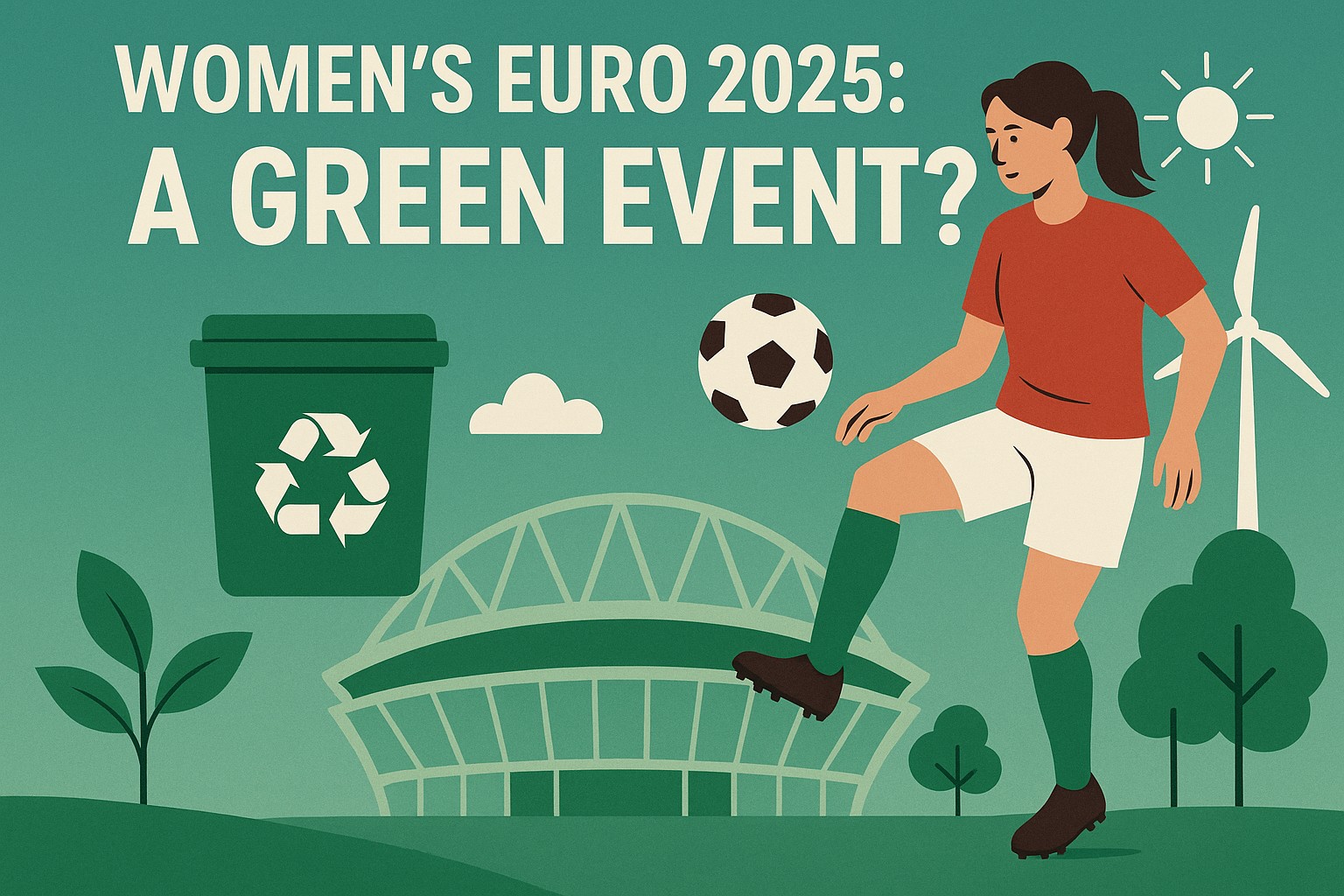WOMEN’S EURO 2025: A GREEN EVENT?

The 2025 UEFA Women’s Euro football tournament, which was held in Switzerland in July, with a thrilling final between England and Spain, was intended to be a ‘green’, or environmentally friendly, sporting event, from a travel, eating and waste reduction point of view.
UEFA highlighted that environmental sustainability was of key importance for the success of the tournament.
So, did the tournament, in fact, live up to the expectations of UEFA?
Apart from many players taking accountability for their carbon footprint, fans also had the opportunity of playing their part in ensuring that the success of the tournament did not come at the planet’s expense.
Travel by fans to and from the eight match venues was an important environmental issue for carbon emissions, which are considered to be the largest contributor to global warming. Therefore, on match days, tournament tickets were valid for free second-class public-transport travel between any part of Switzerland and the venues.
The organisers also prioritised the “4Rs” of reducing, reusing, recycling and recovering products and packaging at all the venues, which were required to reduce waste by recovering materials and leftover food. Fans were also encouraged to help by disposing properly of waste at the venues as part of the recycling efforts.
The availability of vegan and vegetarian food options and products at the venues was also an important part of the organisers’ sustainability strategy for the tournament.
There were fan walks, and 24 ‘green’ volunteers were on hand at the venues to assist fans.
Global broadcast coverage and streaming on UEFA.tv provided record media access to the tournament, allowing fans also to watch, for free, at home and host a watch party.
Fans were encouraged to make these watch parties sustainable, by, amongst other things, avoiding single use of plastic decorations; wearing soccer shirts that they already owned; and saving any leftovers, thereby reducing any food waste.
Whether attending the matches in person or hosting watch parties at home, the organisers of the UEFA Women’s EURO 2025 believed that fans could make eco-friendly choices that chimed with the tournament’s sustainability objectives.
It will be interesting to see how successful the tournament was, from an environmental point of view, when the organisers make their official assessment at the end of the year.
We advise on all aspects of sports law, including ‘green’ issues, and further information is available form Dr Lucien Valloni by emailing him at valloni@valloni.ch.